Cricket World Cup 2015: Jonathan Agnew on NZ-Australia final
- Published
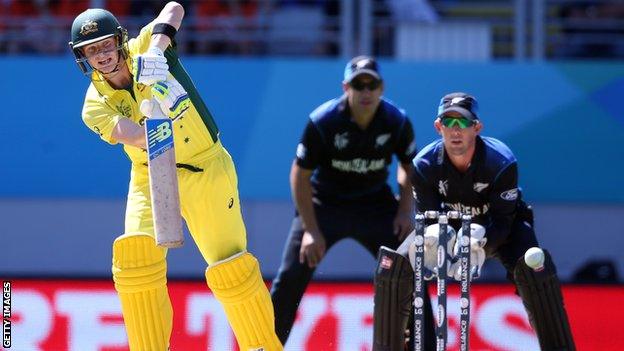
New Zealand's narrow win over Australia was one of the most exciting games of the group stage
World Cup final: Australia v New Zealand |
|---|
Venue: Melbourne Cricket Ground Date: Sun, 29 March Time: 04:30 BST |
Coverage: Live Test Match Special radio and text commentary on BBC Radio 5 live sports extra, BBC Radio 4 Long Wave & BBC Sport website, plus desktop, tablets, mobiles and app |
Australia welcoming New Zealand to Melbourne on Sunday is the best final the World Cup could have hoped for, because they have been the two best teams in the tournament.
We always suspected that Australia would make it this far, but they have had to deal with a few issues along the way.
Firstly, there was the long-standing injury problems of captain Michael Clarke and the speculation surrounding his future as leader. Perhaps more importantly to the team was the side strain that ruled James Faulkner out of the start of the competition.
Cricket World Cup 2015: Australia-New Zealand final preview
Either of those could have made them wobble, yet they have been impressive throughout and the manner in which they disposed of a strong India team in Sydney on Thursday will send them to the Melbourne Cricket Ground full of confidence.
New Zealand, though not everyone's favourites to lift the trophy, were always fancied to do well because they have played every game so far in their own country.
That has not only brought the advantage of knowing the conditions, but also the tremendous support of a nation that has embraced the tournament.
By visiting New Zealand, you learn just how much it would mean to its people for their cricket team to go to "bigger brother" Australia and win the World Cup.
In the pantheon of New Zealand sporting achievement, it would be right up there with the Rugby World Cup win on home soil four years ago. It would be a tremendous accomplishment.
Conditions
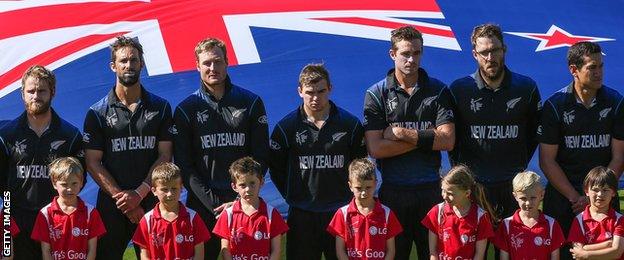
New Zealand have a 100% record at the tournament - but have not had to leave their home country until the final
Straight after Australia won their semi-final, Clarke was talking of how the conditions in Melbourne would play a part in the outcome of the final.
New Zealand have a 100% record in the tournament having played all their games at home, Australia's only defeat was the thrilling one-wicket loss to their near neighbours in Auckland.
Cricket World Cup 2015: How New Zealand beat South Africa
How will New Zealand cope with being parachuted into the MCG with no real preparation or warm-up? It might be that they have no time to think about it and will continue to play well.
There are two big differences to the MCG from the grounds in New Zealand. One is the size, with the MCG being much bigger than the grounds the Black Caps have played on thus far.
Second, and more importantly, is that we would not expect the ball to swing as much in Melbourne as it has across the Tasman.
Much of New Zealand's success has been built on the swing of new-ball pair Trent Boult and Tim Southee, taking wickets and putting the opposition batsmen on the back foot.
If it does not swing, how will they cope?
The toss
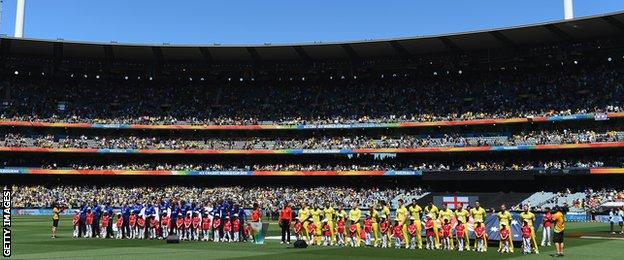
England are the only team winning the toss to field first at the MCG in this World Cup - and the only ones to lose after winning the toss there
You would not want the toss to be such a big influence on a game of this magnitude, but it will play a huge role.
Whoever wins the toss will bat first, partly because of a statistic that we keep harking back to; no team has scored 300 or more to win a one-day international batting second at the MCG.
When you consider all the ODIs that have been played in Melbourne, that is a remarkable fact, yet it is true.
The team that bats first will be looking to rack up a big score in the knowledge that anything in excess of 300 will make them big favourites.
It is not as simple as "the team that wins the toss wins the game", because the quality of the respective bowling attacks means that compiling a big total in the first innings will be far from straightforward.
But if the side chasing emerges after the interval with a target in excess of 300 on the scoreboard, they will know they are battling against history in their attempt to lift the World Cup.
The captains
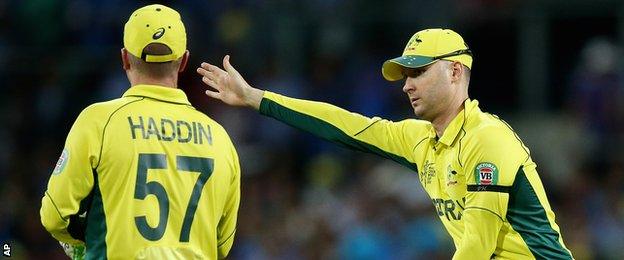
Captain Michael Clarke insists he has no plans to retire from ODIs despite a long-standing back injury
Clarke and his opposite number Brendon McCullum are widely accepted as two of the best captains in the game, both having adapted to the modern way that one-day cricket is played.
These men know that, in the field, you have to take wickets because the days of trying to sneak a few quiet overs here and there are gone.
It that sense, watching the two leaders try to outsmart each other should make for a classic encounter.
Team of the tournament |
|---|
Five New Zealanders and three Australians made Test Match Special's team of the tournament - but who got the final nod? |
Clarke has dealt with the talk around his future and role in the team in a very impressive manner. When a captain is perceived to be under pressure, he can become selfish and cling to his position with a vice-like grip.
Yet Clarke is unselfishly flexible, happy to drop himself down the order when the situation demands, just as he did against India. That is extremely admirable.
McCullum, as well as being an instinctively aggressive and tactically astute captain, is a man who leads from the front.
He buzzes around in the field, diving on everything. However, it is his batting that has illuminated the tournament.
How to stop McCullum
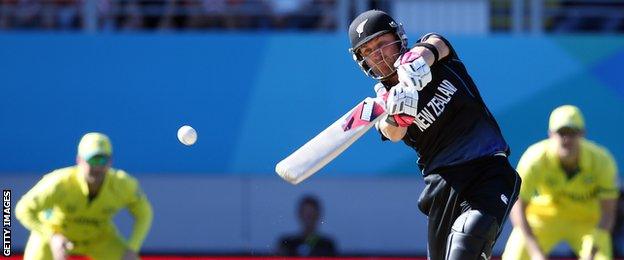
Brendon McCullum top scored with 50 from 24 balls as New Zealand beat Australia in the group stage
McCullum's strike rate is the highest of any batsman to have faced more than 250 balls in all World Cup cricket.
At the top of the order, he is looking to destroy attacks, just as he did with a 26-ball 59 against South Africa in the semi-final.
Yes, he fell to an ugly swipe, but he had already broken South Africa and got the required rate down to something manageable. Without him, New Zealand would not be in the final.
Cricket World Cup 2015: Brendon McCullum key to final - Vaughan
Some get hung up on the nature of a McCullum innings. "He's done the hard work, so why did he get out that way?" That is not the way to look at it, because McCullum is at his best when he is on the charge and he also knows that is the best way to lead his side to victory.
Now, he comes up against the best attack he will have faced in the tournament and there is every chance that he will attempt a dance at Mitchell Starc and see his stumps rearranged.
But if he gets a start, Australia will have to remain as calm as possible and stick to their plan. They will have to get the ball as full as possible and hope McCullum either misses one or finds the hands of a fielder.
The attacks
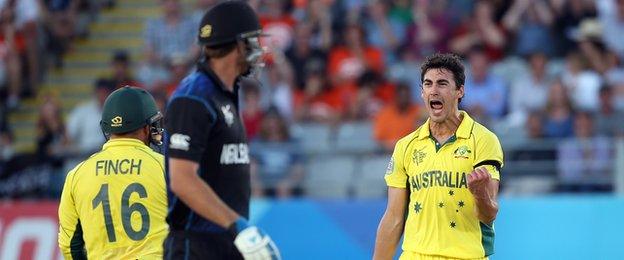
Mitchell Starc took 6-28 against New Zealand in Auckland
Of the two pace attacks, Australia will have the edge because of the reasons I have already touched on.
The likes of Starc, Mitchell Johnson and Josh Hazlewood would like the ball to swing, but if it does not, they will be less concerned.
They are typical Australian quick bowlers, who bend their backs and whack the ball into the pitch. They look for other ways to take wickets if the ball fails to move in the air.
Boult and Southee will want that swing and we will all be watching for it in the early overs. If the ball shows no shape, New Zealand will need a plan B.
However, where the Black Caps do have an edge is in their back-up bowling.
Australia need to get 20 overs from a combination of Faulkner, who looks short of match practice, Shane Watson, and Glenn Maxwell, who can be targeted.
New Zealand, on the other hand, are settled with their back-up options, not least the magic of Daniel Vettori, whose left-arm spin has been magnificent throughout.
The verdict
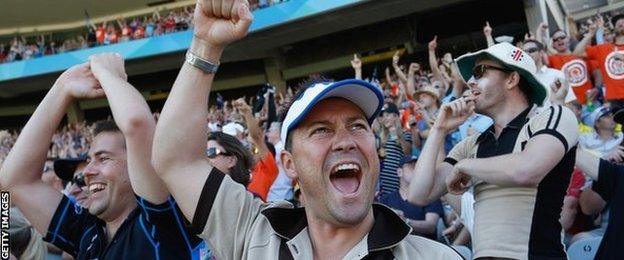
Will New Zealand be celebrating a first World Cup final win on Sunday?
Huge games like this are often won by who best deals with the pressure. Will nerves get the better of one team on the day? Who can best stick to what has served them well to get this far?
In a tournament dominated by the batsmen, Australia have greater depth - Brad Haddin is all the way down at number eight. They will also have home advantage.
New Zealand are fuelled by some brilliant performances and the excitement of their entire country. They may not have Australia's resources, but they have some big players.
Australia start as the favourites, but that is no bad position for New Zealand, either.
Jonathan Agnew was speaking to BBC Sport's Stephan Shemilt.
Listen to highlights from Test Match Special's and 5 live Sport's 2015 World Cup coverage.
- Published28 March 2015
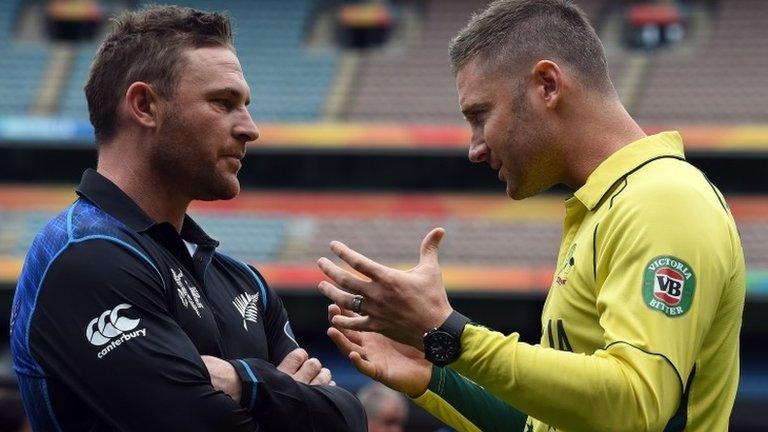
- Published26 March 2015
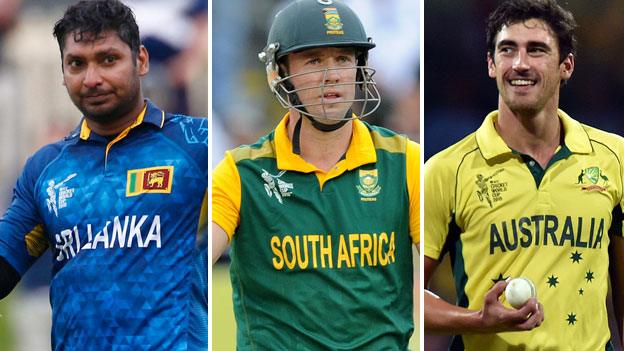
- Published20 March 2015
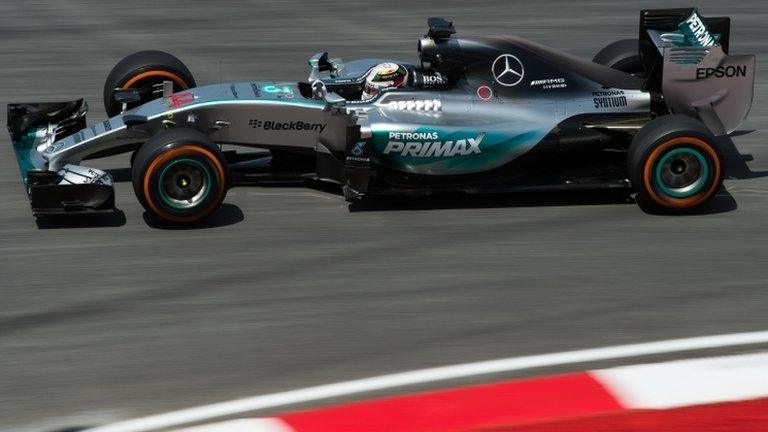
- Published27 March 2015
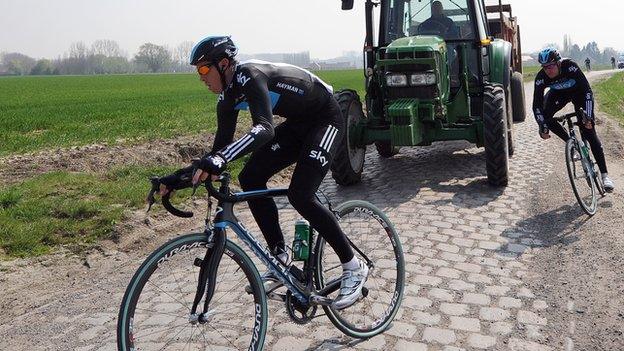
- Published27 March 2015
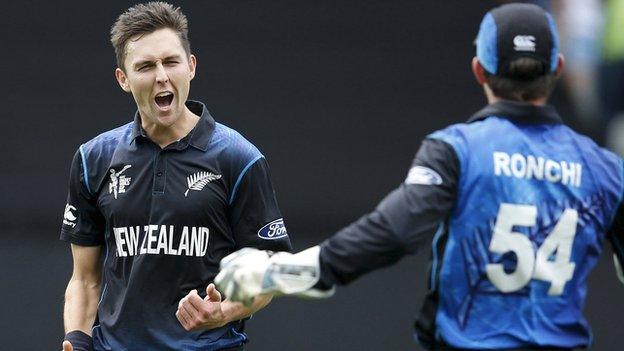
- Published26 March 2015
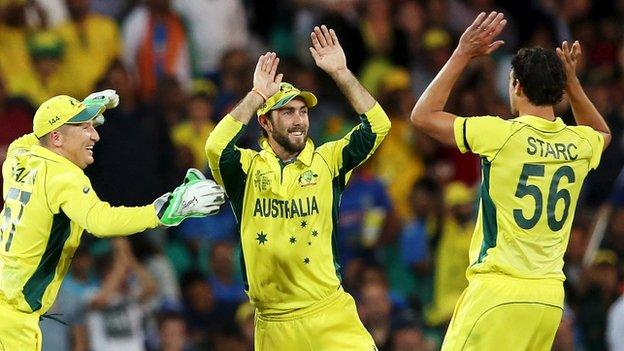
- Published30 July 2013
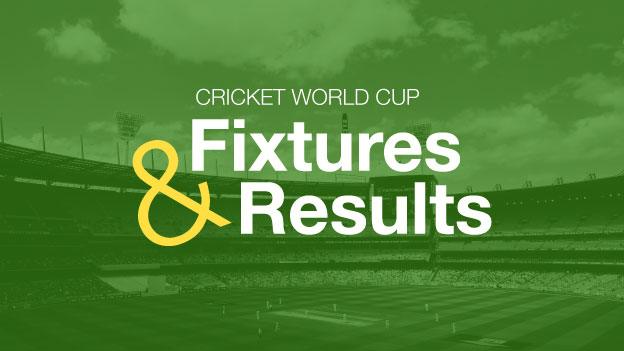
- Published15 May 2018
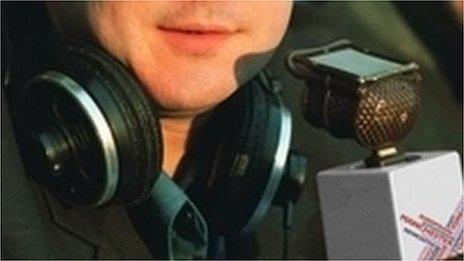
- Published18 October 2019
